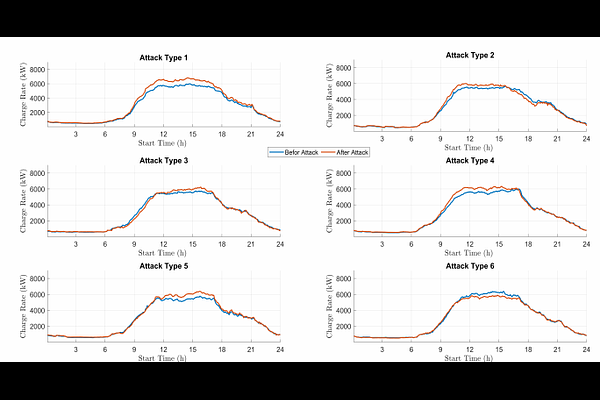Charge Manipulation Attacks Against Smart Electric Vehicle Charging Stations and Deep Learning-based Detection Mechanisms

Charge Manipulation Attacks Against Smart Electric Vehicle Charging Stations and Deep Learning-based Detection Mechanisms
Hamidreza Jahangir, Subhash Lakshminarayana, H. Vincent Poor
AbstractThe widespread deployment of "smart" electric vehicle charging stations (EVCSs) will be a key step toward achieving green transportation. The connectivity features of smart EVCSs can be utilized to schedule EV charging operations while respecting user preferences, thus avoiding synchronous charging from a large number of customers and relieving grid congestion. However, the communication and connectivity requirements involved in smart charging raise cybersecurity concerns. In this work, we investigate charge manipulation attacks (CMAs) against EV charging, in which an attacker manipulates the information exchanged during smart charging operations. The objective of CMAs is to shift the EV aggregator's demand across different times of the day. The proposed CMAs can bypass existing protection mechanisms in EV communication protocols. We quantify the impact of CMAs on the EV aggregator's economic profit by modeling their participation in the day-ahead (DA) and real-time (RT) electricity markets. Finally, we propose an unsupervised deep learning-based mechanism to detect CMAs by monitoring the parameters involved in EV charging. We extensively analyze the attack impact and the efficiency of the proposed detection on real-world EV charging datasets. The results highlight the vulnerabilities of smart charging operations and the need for a monitoring mechanism to detect malicious CMAs.